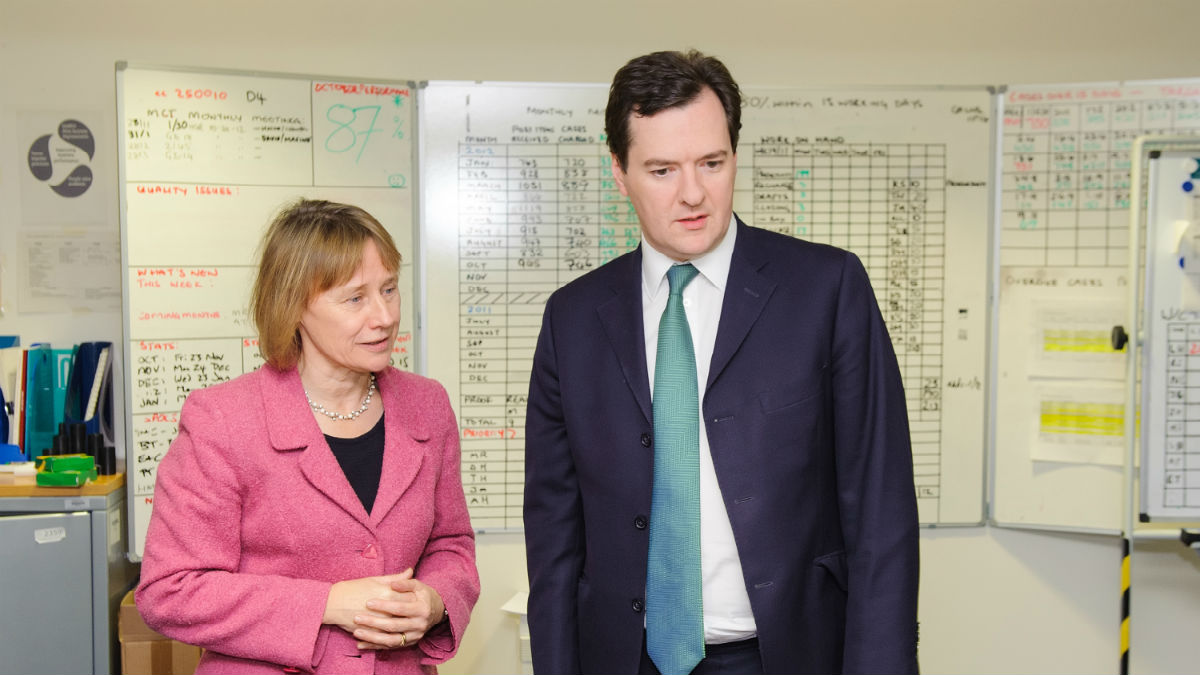Will HMRC overhaul make organising your tax affairs easier?
Unions raise fears over effects of longer term job cuts, but business trade body welcomes changes

A free daily email with the biggest news stories of the day – and the best features from TheWeek.com
You are now subscribed
Your newsletter sign-up was successful
HM Revenue and Customs has announced it is undertaking a radical restructure that will kick-start the second half of its ten-year modernisation programme.
Under plans unveiled yesterday, the tax watchdog will open 13 regional tax centres over the coming years, replacing the 170 local offices it currently operates. Ultimately 137 of these will be closed altogether by 2027, including those in expensive Central London locations, saving around £100m in overheads.
The agency says the "majority" of staff will move to the new centres, and did not indicate it will be making large numbers of job cuts immediately. It did note, however, that the "aim [is] to have fewer staff in the future as it streamlines how it works and uses the best of modern technology to reduce costs".
The Week
Escape your echo chamber. Get the facts behind the news, plus analysis from multiple perspectives.

Sign up for The Week's Free Newsletters
From our morning news briefing to a weekly Good News Newsletter, get the best of The Week delivered directly to your inbox.
From our morning news briefing to a weekly Good News Newsletter, get the best of The Week delivered directly to your inbox.
It's all part of an extended revamp which started five years ago. It has resulted in heavy investment in digital infrastructure to take pressure off of call centres - all 281 day-to-day walk-in centres have already been closed).
HMRC says the changes now mean 80 per cent of self-assessment tax returns are completed online, enabling it to collect a record £517bn in tax last year.
But the plans have been criticised in some quarters, especially in the wake of complaints over HMRC services standards that saw around half of all calls to its centres 'dropped' in the second quarter of this year. The Guardian reports that it takes on average 14 minutes, 22 seconds to answer a call and that around a quarter are still going unanswered.
Last week, the Public Accounts Committee of MPs said HMRC was offering the worst of both worlds, with poor standards of service for honest taxpayers combining with a weak record on punishing those who evade tax. This latter could be helped by the opening under the new plans of four additional specialist centres, including one at the Scottish Crime Campus in Gartcosh, near Glasgow.
A free daily email with the biggest news stories of the day – and the best features from TheWeek.com
Short-term pain for long-term gain
Mark Serwotka, general secretary of the PCS union, said: "Closing this many offices would pose a significant threat to the operation of HMRC, its service to the public and the working lives of staff, and the need for parliamentary scrutiny of the plans is undeniable and urgent."
Frank Haskew, of the Institute of Chartered Accountants in England and Wales, told the BBC: "We shouldn't underestimate the disruption that this restructuring will have on HMRC and the distraction it will cause to its leadership as they seek to implement it. Given the challenge of improving service standards and closing the tax gap, we are concerned that this is the wrong time to be reorganising, closing offices and cutting staff."
Haskew added, however, that the long-term ambition of the reforms was correct.
The Institute of Directors also argued the direction of travel was right and said it will support the plans. Stephen Herring, head of taxation at the IoD, said: "The announcement of another HMRC restructure will be met with predictable concern that fewer people answering calls could result in lower revenue.
"But that simply need not be the case. The number of employees should not be seen as a proxy for HMRC's effectiveness as a tax collector. The United States Internal Revenue Service serves a population five times the size of the UK, but has only 60 per cent more staff."